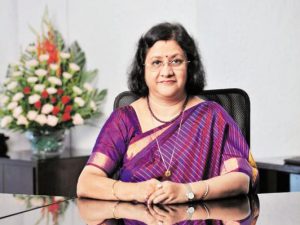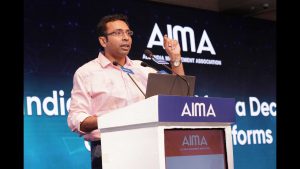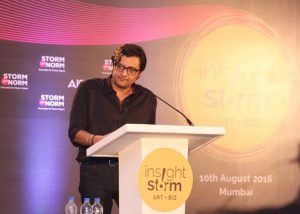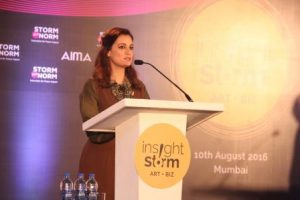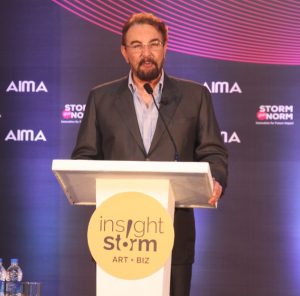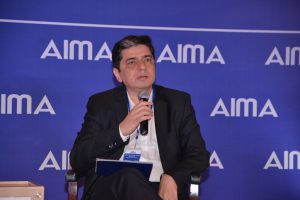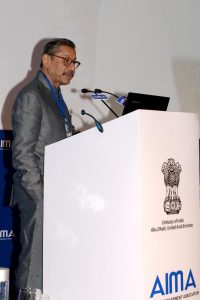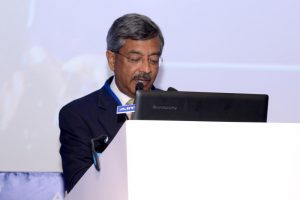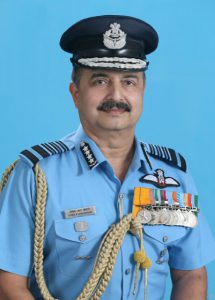
Air Chief Marshal Vivek Ram Chaudhari addressing
A potent Indian Air Force in the future will be characterized by an efficient network of sensors, decision-makers, and shooters coupled with firm leadership, advanced ammunition, and modern technology.
Air Chief Marshal Vivek Ram Chaudhari, PVSM, AVSM, VM, ADC, Chief of the Indian Air Force delivered the keynote address at AIMA’s 7th National Leadership Conclave and here are key points of his discourse.
He opened his address with a verse from the book ‘The Black Swan’ by famous author Nassim Nicholas Taleb; “The Black Swan is an event so rare that even the possibility that it might occur is unknown. It has a catastrophic impact when it does occur. And it’s always explained in hindsight as if it was actually predictable”. He further added that in the last 2 years, the world has witnessed another Black Swan event in the form of covid, that no one had predicted. The impact of the virus has been catastrophic across the world, and the theory on the origins of the virus is yet to be developed. Similarly, we have also witnessed unprecedented development in technology, which has totally changed the way we live and work. With the advent of the Internet and social media platforms, the world has become a very small place.
Traditionally, we always looked at a soldier on a battlefield, a sailor on a ship, or an airman in an aircraft as combatants who fight wars. A college student creating memes, a youngster sitting in front of a computer, a banker analyzing the fiscal health of a company, a diplomat making foreign policies would also be the combatants waging wars in the future alongside the soldier, sailor, and airman. All these scenarios add up to the term- ‘Comprehensive National Power’. In modern warfare, the comprehensive national power of a country must be brought to bear on the adversary, if we were to want a decisive victory.
Continue reading →

